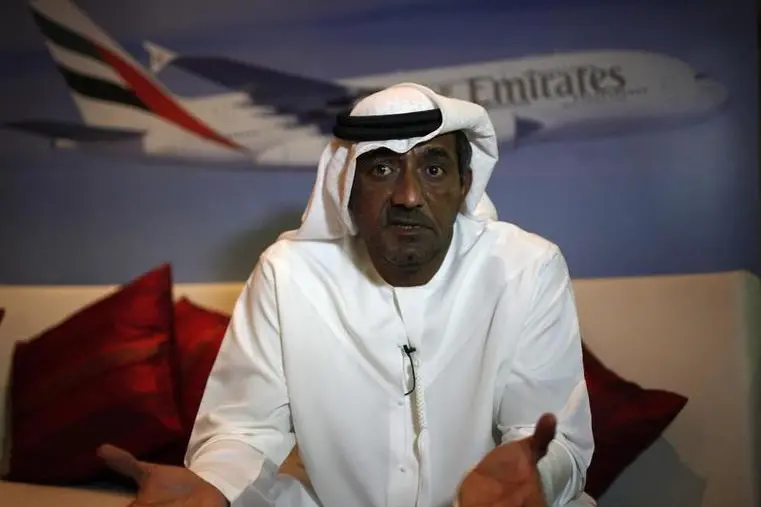PHOTO
The Dubai airline is targeting 70 million passengers a year by 2020.
Dubai's flagship carrier Emirates is aiming to fly 70 million passengers per year and operate a fleet of more than 300 aircraft within the next four years, its chairman told Zawya.
The state-backed airline currently owns 250 jets, with its fleet of 74 A380s making it the world's largest operator of the Airbus superjumbo. It is also the biggest operator of rival Boeing's 777, with over 150 of the American-made aircraft flying from its base in Dubai.
"We have confirmed orders to buy 253 new planes with a total estimated value exceeding $122 billion. We will take delivery of them over the next few years," Sheikh Ahmed Bin Saeed Al Maktoum, chairman and chief executive officer of Emirates Airlines and Group, said in an email interview outlining the carrier's ambitious expansion plans.
"We expect Emirates Airlines to carry more than 70 million passengers by 2020 on its fleet, whose number will by then be more than 300 planes," he added.
In order to meet these targets, the airline is adding more destinations to its network of scheduled flights. It added six routes in 2015 - Bali (Indonesia), Multan (Pakistan), Orlando (USA), Mashhad (Iran), Bologna (Italy), and Sabiha Gokcen Airport (Istanbul) - and plans to add another six by the end of 2016.
"New services will start to Cebu and Clark in the Philippines on March 30, 2016; to Yinchuan and Zhengzhou in China on May 3; and to Yangon (Myanmar), and Hanoi (Vietnam) on August 3," Sheikh Ahmed said.
The carrier needs a constant stream of new aircraft delivered from Airbus and Boeing to maintain its fleet and network plans, especially in light of the aircraft retirement plans it announced in December 2015.
Emirates plans to retire 26 aircraft this year, including 12 A330-300s, four A340-300s, one A340-500, six Boeing 777-200ERs, two Boeing 777-300s and one Boeing 777-300ER. Another 13 aircraft will be phased out next year and a further 13 will be taken out of service in 2018.
As aircraft exit the fleet, another 36 are due to join the line-up this year, including 20 A380s and 16 Boeing 777-300ERs.
The airline's aircraft currently have an average age of 15.7 years, below the industry average of 25 years. However, once the streamlining of the fleet takes place, the average age of an Emirates aircraft will fall to 5.6 years by the end of 2016.
© Zawya 2016





















